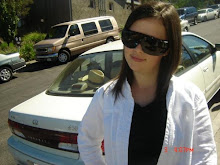It is the middle of the twentieth century, and in a home economics program at a prominent university, real babies are being used to teach mothering skills to young women. For a young man raised in these unlikely circumstances, finding real love and learning to trust will prove to be the work of a lifetime. In this captivating novel, Lisa Grunwald gives us the sweeping tale of an irresistible hero and the many women who love him.
From his earliest days as a "practice baby" through his adult adventures in 1960s New York City, Disney's Burbank studios, and the delirious world of Beatles' London, Henry remains handsome, charming, universally adored -- and never entirely accessible to the many women he conquers but can never entirely trust.
Filled with unforgettable characters, settings, and action, The Irresistible Henry House portrays the cultural tumult of the mid-twentieth century even as it explores the the inner tumult of a young man trying to transcend a damaged childhood. For it is not until Henry House comes face-to-face with the truths of his past that he finds a chance for real love.
Plot summary taken from the book jacket. I also suggest reading the Author's Note, which can be found on lisagrunwald.net.
Like Grunwald, this topic piques my interest. I would love to read some non-fiction or see a documentary about the practice of borrowing babies from orphanages to use as "practice" in university home ec departments. It sounds kind of barbaric, doesn't it? And yet, Grunwald writes sensitively from both perspectives, pro and con. Theories on child rearing have evolved and changed dramatically in the last hundred years, and it is the greatest fear of Martha, the head of the Practice House in the novel, that she and her colleagues were wrong all along. Even Henry, who grows to resent his upbringing and all it represents, finds it difficult to unlearn the teachings of the Practice House. Henry is a dynamic and conflicted character, and the reader is taken in by his charms as much as his conquests are. Grunwald's imaginings of Henry's reactions to his circumstances ring true, which I think is a great accomplishment.
I enjoyed reading this novel in part because Grunwald paid such careful attention to the settings -- the East Coast college campus, the wholesome Disney studios, swinging 60s London. You really get a feel for the times and places that Henry existed in. It was a quick read, which I wasn't really expecting, but I think that it's because you become so immersed in the story. I found myself looking up from reading and feeling somewhat disoriented, because my head was still in Henry's world. That's not to say that it's the easiest read. There is a lot deep sadness experienced by most, if not all, of the characters: Martha, desperate for Henry to need her as much as she needs him; Betty, who's made a complete mess of her life and can't completely ignore the fact; Mary Jane, aware of just how hard it will be for Henry to become the man she needs him to be; and even Henry, who does a good job of covering it up anger and feelings of betrayal. Their stories stay with you for long after you've finished reading.
This novel is beautifully and lovingly written. I highly recommend it.



No comments:
Post a Comment